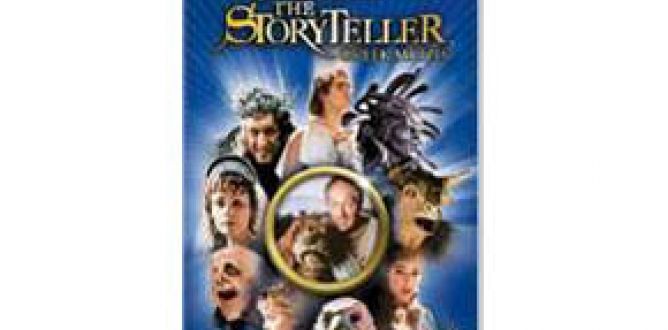Jim Hensons The Story Teller/ Greek Myths Parent Guide
Parent Movie Review
Have you ever tried to slog your way through mythology? Those peculiar names and strange stories are all Greek to me.
But not to Jim Henson. The father of the Muppets wanted to bring these ancient Athenian accounts to the general public by featuring them on his television series The Story Teller. Neither the show nor the four pilot episodes of on this topic ever really got off the ground, but thanks to the release of Jim Henson’s, The Story Teller: Greek Myths, your family can now view the complete collection on DVD.
Anyone familiar with the legends will have a sneaking suspicion why the program struggled to gain broad audience appeal. For youngsters accustomed to Henson’s work on Sesame Street, these complex tales that seldom end happily-ever-after are hard to sit through.
To explain the themes, each episode is carried by a storyteller (played by Michael Gambon), who rummages through a maze of ruins uncovering artifacts that weave into dramatized flashbacks of the tale he is narrating. To lighten the mood, he is joined by his faithful dog (a puppet voiced by Brian Henson), who interrupts the momentum whenever the yarn gets too tense, too sad, or too long.
While some scanty costumes and a few naked statues may give parents a moment of pause, the greatest concerns for families will come from two less likely sources; the quality of the production and stories themselves.
Using his genius as a puppeteer, Henson creates the many monsters and creatures who populate the myths, including the snake haired Medusa with her stone cold stare, the bull-headed Minotaur with his hunger for blood sacrifices, and three ghoulish witches that squabble over a disembodied eye. Resembling his efforts in Labyrinth and The Dark Crystal, it is unfortunate the greater his success at realism, the greater becomes his chances of frightening the viewer.
Meanwhile the tales delve into the faultiest of human foibles, like a man who would kill out of jealousy (Daedalus and Icarus), a parent who values his own life more than his child’s future (Perseus and the Gorgon), a spouse who lets his doubts rob his marital happiness (Orpheus and Eurydice) and a son who’s glory-lust destroys his father (Theseus and the Minotaur).
Ironically, it is the same two things that make these episodes worth watching with your older children. Beautifully constructed, the productions utilize various techniques, such as intricate puppets, elaborate costumes, and animating figure drawings on Grecian urns.
Although the plots are hardly the stuff of bedtime stories, they do invite great philosophical discussion, prompted in part by the narrator’s shared observations. How does a father come to accept that he has no control over his son—the thing he loves most? Why are children reluctant to heed their parent’s protective council? Could you love someone beyond the shadow of death? What would motivate you to face your most petrifying fear? How can selfishness poison the most cherished relationships? Perhaps it is the probing of these universal weaknesses that accounts for the enduring quality of these legends.
Jim Henson’s skills have blown the dust of the stuffy stories, breathed new life into these classics, and brought them out of the library and into the living room. Teens, who will encounter these tangled tales of Greek deities in school, should be especially grateful. (At the very least, these students will come away knowing how to pronounce those unusual names!)
Updated July 17, 2017
Jim Hensons The Story Teller/ Greek Myths Parents' Guide
As the narrator discusses some of the trials faced by the characters in the myths, he states, “The Gods play with us.” How do you feel about that comment? Do you feel challenges are merely a torment or a learning experience? Do you believe there is a greater force at work in your life?
In the story of the Minotaur, one character sees only a monster while another sees something human behind the beast’s face. Why can separate people see the same situation from different angles? How does one’s perspective affect the way they respond?
Home Video
Related home video titles:
Disney adapted the story of Hercules for the big screen. Both their production and DreamWorks’The Prince of Egypt animate figures on urns /hieroglyphics in a fashion similar to that used in The Story Teller. Jim Henson’s Creature Shop lent their expertise to Jack and The Bean Stalk: The Real Story.

